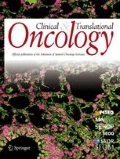Abstract
Cancer is a genetic disease. Colorectal cancer is probably the type of cancer for which the most is known about the genes affected by cancer-causing mutations, their normal functions and their carcinogenic effects when mutated. Most cancer-causing mutations are somatic, occurring in the affected tissue during the course of carcinogenesis. However, most cancers also have a hereditary component that is caused by predisposing mutations that affect the germline, are heritable and contribute to the initiation of carcinogenesis. High-penetrance mutations confer predispoition to colorectal cancer mainly in Lynch syndrome (which involves mutations in mismatch-repair genes) and in familial adenomatous polyposis (which involves mutations in theAPC tumour suppressor). Together, these conditions account for 5% or less of all cases of colorectal cancer. Low-penetrance mutations account for a high proportion of all the attributable risk of colorectal cancer, in both familial and sporadic cases. These mutations are more difficult to identify, but mainly due to the implementation of association studies, are increasingly being detected and characterized. The identification of both high- and low-penetrance mutations contributes significantly to our understanding of the molecular genetic processes occurring in cancer. This understanding facilitates the development of therapeutic drugs and preventive strategies.
Similar content being viewed by others
References
De la Chapelle A. Genetic predisposition to colorectal cancer. Nature Reviews Cancer. 2004;4:769–80.
Kemp Z, Thirlwell C, Sieber O, Andrew Silver A, Tomlinson I. An update on the genetics of colorectal cancer. Human Molecular Genetics. 2004;13:177–85.
Wagner A, Barrows A, Wijnen JT, et al. Molecular analysis of hereditary nonpolyposis colorectal cancer in the United States: high mutation detection rate among clinically selected families and characterization of an american founder genomic deletion of the msh2 gene. Am J Hum Genet. 2003;72:1088–100.
Gaspar C, Fodde R. APC dosage effects in tumorigenesis and stem cell differentiation. Int J Dev Biol. 2004;48:377–86.
Chao EG, Lipkin SM. Molecular models for the tissue specificity of DNA mismatch repair-deficient carcinogenesis. Nucleic Acids Research. 2006;54:840–52.
Fearon ER, Vogelstein B. A genetic model for colorectal tumorigenesis. Cell. 1990; 61:759–67.
Fearon ER, Jones PA. Progressing toward a molecular description of colorectal cancer development. FASEB Journal. 1992;6:2783–90.
Goyetie MC, Cho K, Fasching CL, et al. Progression of colorectal cancer is associated with multiple tumor suppressor gene defects but inhibition of tumorigenicity is accomplished by correction of any single defect via chromosome transfer. Molecular and Cellular Biology. 1992;12:1387–95.
Author information
Authors and Affiliations
Corresponding author
Additional information
Supported by an unrestricted educational grant by Bristol-Myers Squibb.
Rights and permissions
About this article
Cite this article
Benito, M., Díaz-Rubio, E. Molecular biology in colorectal cancer. Clin Transl Oncol 8, 391–398 (2006). https://doi.org/10.1007/s12094-006-0192-8
Issue Date:
DOI: https://doi.org/10.1007/s12094-006-0192-8




